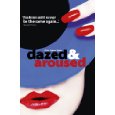 Gavin James Bower’s 2009 debut, Dazed & Aroused, looked at the collapse of one man’s glamorous dream in the world of modelling; for his follow-up, Bower takes a few steps back to focus on the time in life when such dreams may begin to form. Made in Britain follows the lives of three Burnley teenagers about to sit their GCSEs, each with a notion that they need to escape their immediate circumstances.
Gavin James Bower’s 2009 debut, Dazed & Aroused, looked at the collapse of one man’s glamorous dream in the world of modelling; for his follow-up, Bower takes a few steps back to focus on the time in life when such dreams may begin to form. Made in Britain follows the lives of three Burnley teenagers about to sit their GCSEs, each with a notion that they need to escape their immediate circumstances.
Russell, academically-minded but also timid and bullied, could spread his wings if he moved in with his cousin Jason in Leeds and went to college there, but that would mean leaving his mother behind when she has no one else. Charlie, who has neither the time nor the will to contemplate A Levels, turns to drug-dealing as a means of raising the money his family so badly needs. And Hayley, who lives alone with her father after her mother died, dreams of being famous; love may even be on the cards – perhaps with Charlie, perhaps with Mr Mitchell, the teacher on whom she has a crush, and who might just reciprocate.
Made in Britain has a very clearly defined structure; every chapter consists of three scenes, one narrated by each of the three protagonists, in the same order (except the last chapter, where the order is reversed). For one thing, this allows Bower to reflect his novel’s concerns at the formal level, with the rigid structure representing the intractability of the characters’ situations. But it also proves effective as a storytelling device, as Bower juxtaposes different characters’ viewpoints (such as Charlie’s and Hayley’s contrasting ideas about each other), and has what may be key events for one protagonist take place in the background of another’s scene. There’s also this neat segue in the first chapter:
Russell
[…]
Life is transient, I think as I walk through my front door.
Love is forever.Charlie
Jenny’s passed out on my lap, a bottle of White Lightning in her cold, pale hand. [p. 8]
This nicely encapsulates the distance in the book between idealistic dreams and the hard realities of life for these characters. Bower nods towards the socio-economic factors which have contributed to their circumstances (Charlie: ‘I look out the window as we drive past the old shoe factory where Mum used to work, when she was about my age. It shut ages ago, course,’ p. 110); but his focus in general is primarily on the teenagers themselves – perhaps naturally enough, given that his protagonists have to deal with their immediate situations, and dwelling too much on the past isn’t necessarily going to help them. The author makes clear what has caused all three of his protagonists to take their respective paths, and the difficulties they face; none of the three characters has a completely free hand, but they’re not entirely forced by circumstance into what they do, either. From that point of view, Made in Britain is a story of making what seems the best choice, and then dealing with the consequences.
Towards the end of the novel, Russell reflects on the difference between Burnley and the bigger local cities:
I love going to Leeds because, there, being different isn’t about listening to metal in your bedroom or, if you’re really brave, dyeing your hair a funny colour, like it is where I’m from. In cities like Leeds and Manchester, nobody looks at you funny or beats you up for being different – because there’s always someone who’s more different than you. You can just get on with being yourself. [pp. 146-7]
This is the real issue that the protagonists have with their lives in Burnley (if not necessarily with the town specifically): they don’t have the means to be the people they could be. Made in Britain asks what it is like to be at a point of transition in life when your situation makes it difficult to make any sort of change – and the book offers no easy answers.
Elsewhere
Hackney Citizen interview with Gavin James Bower
Quartet Books
Some other reviews of Made in Britain: Helen J. Beal; Sophia Waugh for The Guardian.
 The exploits of a model in a glossy, superficial world of sex ‘n’ drugs ‘n’ photo-shoots do not, to be honest, sound like immediately appealing reading — which is rather the point. This is the world in which
The exploits of a model in a glossy, superficial world of sex ‘n’ drugs ‘n’ photo-shoots do not, to be honest, sound like immediately appealing reading — which is rather the point. This is the world in which
Recent Comments